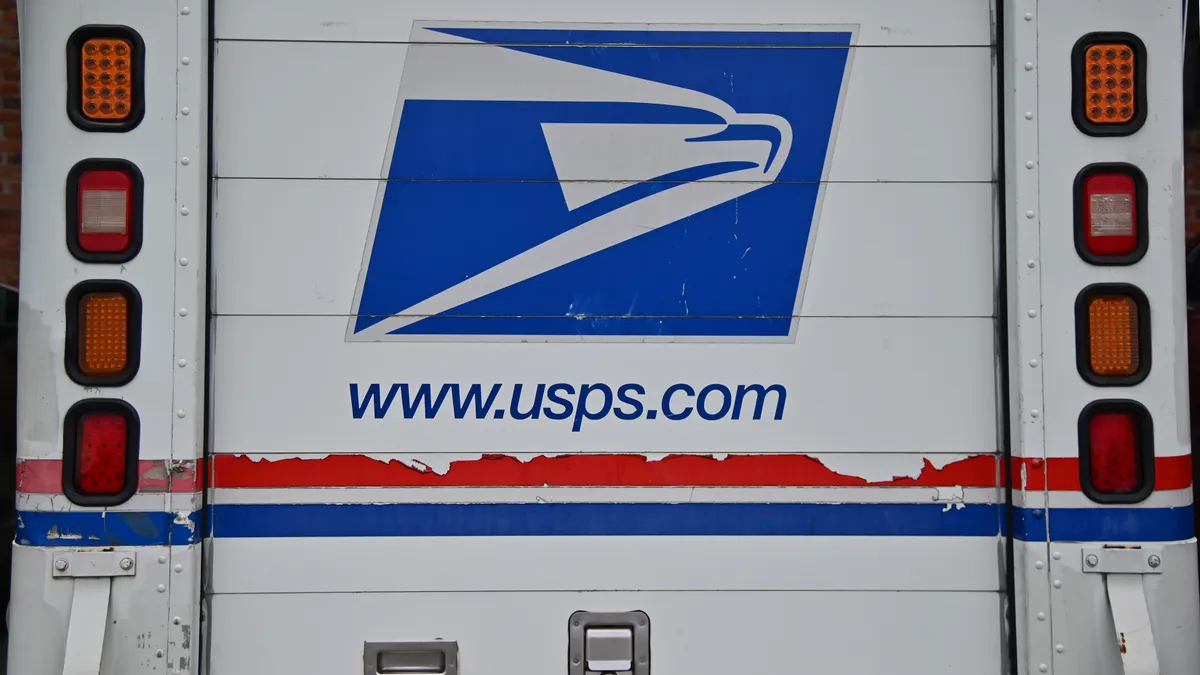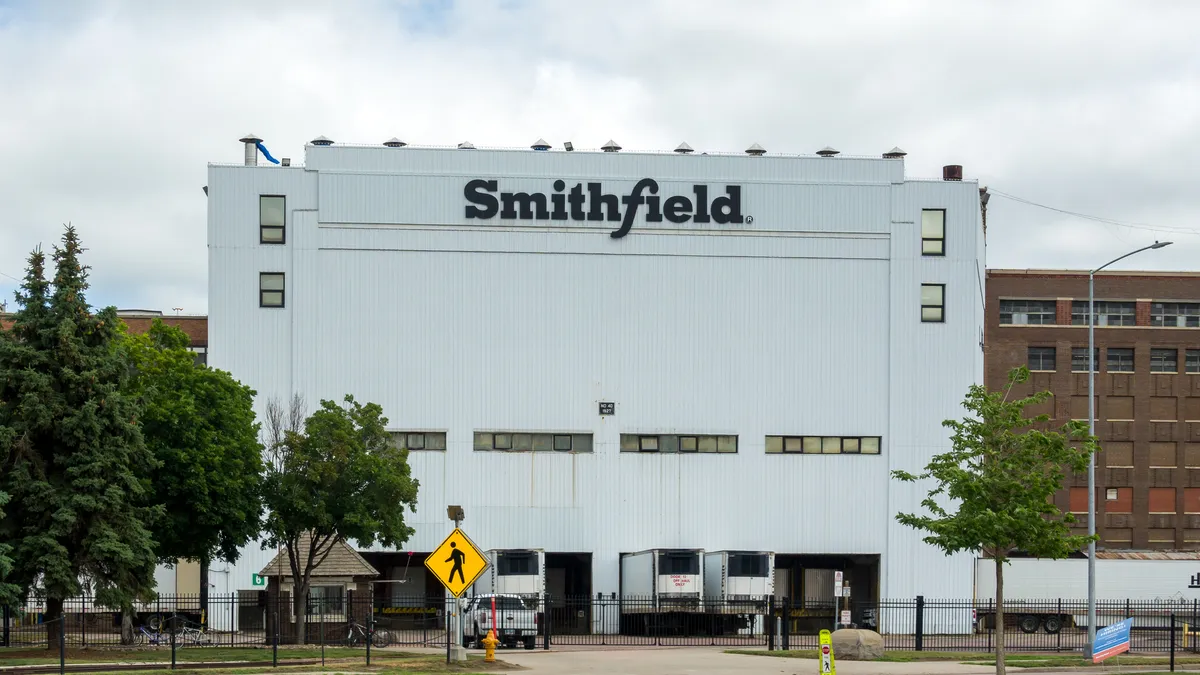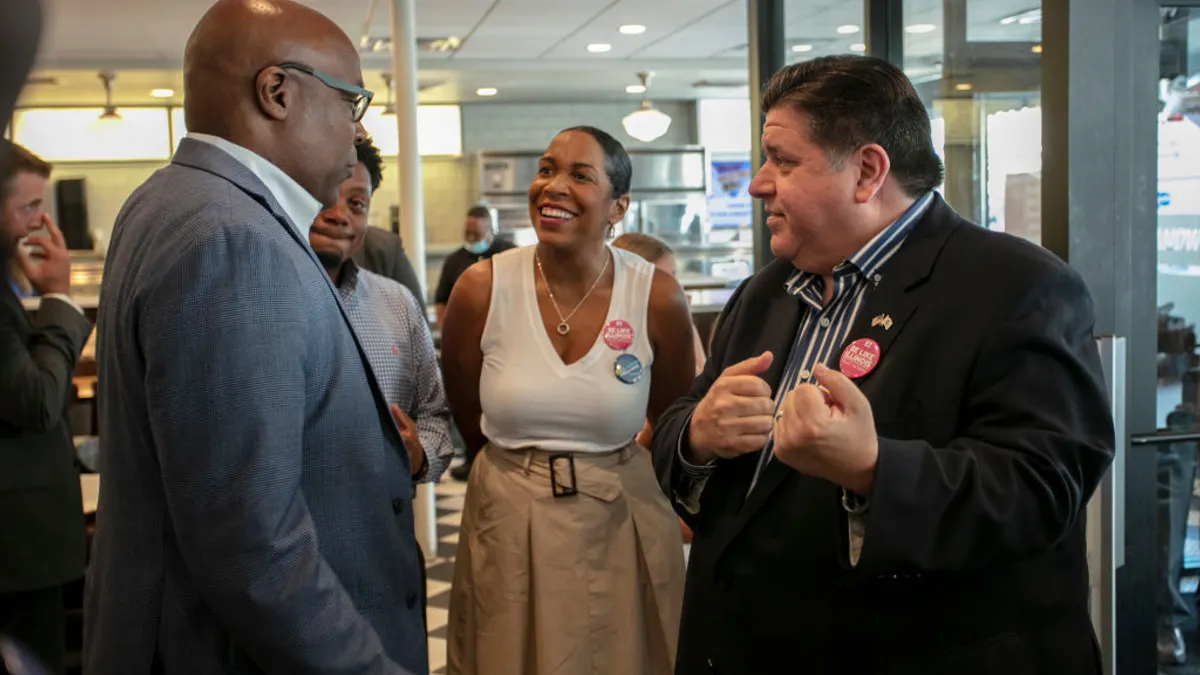Judges for the 5th U.S. Circuit Court of Appeals questioned whether two Texas district courts effectively denied Amazon and SpaceX their requests for preliminary injunctions in a pair of ongoing labor disputes with the National Labor Relations Board.
During oral arguments Nov. 18, the three-judge panel seemed particularly skeptical of Amazon’s claim that the district judge’s failure to issue a stay and preliminary injunction by Sept. 27 — the date on which Amazon claimed the NLRB could have issued a decision in an unfair labor practice charge against the company — constituted a denial of its request altogether.
Judge James Graves Jr. noted that the district judge had asked the parties to file supplemental briefing in the case by Sept. 27. “You wanted him to receive the briefing on the 27th, read it, review it, vet it and rule all on the 27th,” Graves said in a brief back-and-forth with Trevor Cox, counsel for Amazon. “That just doesn’t seem reasonable to me.”
Cox countered that the court had “plenty of time” to consider the request and was aware of the need for a decision. When asked by other members of the court whether the NLRB had given Amazon advance notice of whether it actually intended to issue a decision by Sept. 27, Cox said that the agency had not done so.
Julie Gutman Dickinson, counsel for the intervenor Teamsters union, which seeks to represent Amazon fulfillment center workers, said that NLRB typically takes months or longer from the date of a supplemental opposition filing deadline — the same kind of deadline that Amazon was required to meet by Sept. 27 — to issue a decision on an unfair labor practice charge.
But that possibility is “sort of a hollow assurance,” Cox said, “and in order to protect our interests we had to assume that as soon as our brief was filed, the NLRB could take action.”
The district court eventually granted an administrative stay of proceedings in the Amazon case on Sept. 30, a few days after the Sept. 27 deadline, and it ordered that the company’s appeal be expedited.
SpaceX faced a similar situation in which the NLRB scheduled a March 5 administrative hearing date for an unfair labor practice charge against the company. SpaceX asked a Texas district court for preliminary and injunctive relief to be decided prior to the hearing date, but the case fell to a dispute between the parties regarding a transfer of venues. The March 5 hearing opened without a decision on SpaceX’s request for relief.
The company next asked the court to grant relief prior to a May 2 discovery hearing before an NLRB administrative law judge, but it did not receive any indication that the court would rule on the subject by April 30. It asked the 5th Circuit for an injunction pending appeal on May 1, which was granted.
SpaceX alleged that the district court effectively denied the company’s request for relief, but during oral arguments, the 5th Circuit seemed similarly skeptical.
“I’m having a hard time seeing why you couldn’t have waited even after the [administrative law judge] issued a discovery order,” Judge Priscilla Richman said in an exchange with counsel for SpaceX. “It’s not like that would’ve been the end of your administrative preceding.”
Series of battles tees up courts’ review
The cases at issue in Monday’s oral arguments have complex histories attached to them.
In Amazon.com Services LLC v. National Labor Relations Board, workers at one of the company’s New York fulfillment centers voted to unionize in 2022, but Amazon challenged the election results on the basis of alleged inappropriate interference by the employee group and the NLRB regional office overseeing the election, per the company’s filing with the 5th Circuit.
Separately, NLRB alleged that Amazon unlawfully refused to recognize or bargain with the employee union at the New York site. NLRB General Counsel Jennifer Abruzzo moved for summary judgment on that matter, arguing that Amazon, by pursuing its objections alleging election interference and choosing not to bargain with employees while those challenges were adjudicated, violated the National Labor Relations Act.
Meanwhile, SpaceX’s suit, Space Exploration Technologies, Corp. v. National Labor Relations Board stems from a NLRB complaint that alleged the company fired employees who in 2022 published an open letter that conveyed workplace concerns in violation of the NLRA. The company subsequently sued NLRB, alleging that it was unconstitutionally subjected to an administrative hearing that’s structure violated its right to a jury trial.
Companies criticize board’s structure, enforcement
Amazon and SpaceX raised several claims regarding NLRB’s constitutionality. The first concerns the constitutionality of the board’s structure, which Cox said is unlike that of other federal agencies in that it does not require that presidents appoint a certain number of members who are not part of their own political parties. The lack of such a requirement “creates excessive insulation of the NLRB,” differentiating it from other federal agencies.
The two companies also claimed that NLRB’s adjudication of private rights violated their Seventh Amendment right to a trial by jury. In Amazon’s case, Cox said NLRB’s order that the company compensate employees for the lost opportunity to engage in collective bargaining assumed that Amazon would have agreed to a certain benefits package had it agreed to negotiate with employees sooner.
“That assumption is not only speculative, but it [also] runs contrary to the provision of the NLRA that requires employers and employees to negotiate in good faith but expressly states that neither party is required to agree to any particular proposal,” Cox said. “Because this form of damages is sought to be imposed, under the Seventh Amendment, Amazon is entitled to have the relevant issues decided by a jury.”
Amazon and SpaceX both claim that NLRB’s structure violates the constitution’s separation of powers. Cox said this is in part because the board’s members assess whether the board itself has acted within its structure under the NLRA, and “due process guarantees that no man can be a judge in his own case.”





















